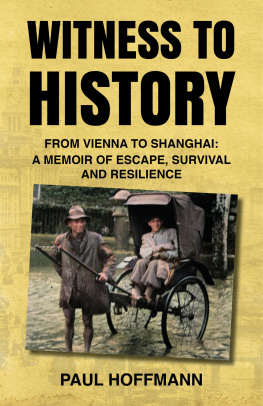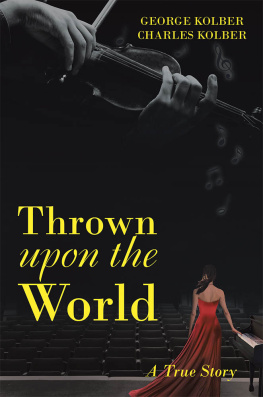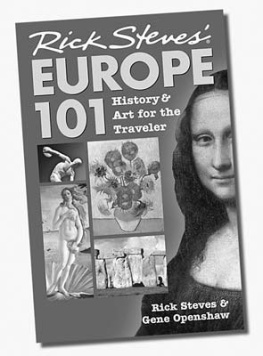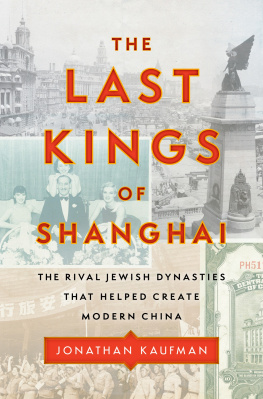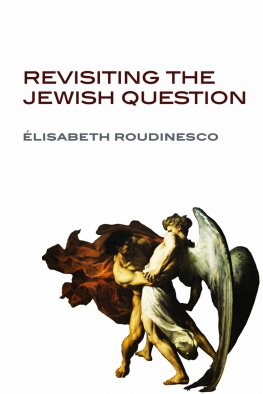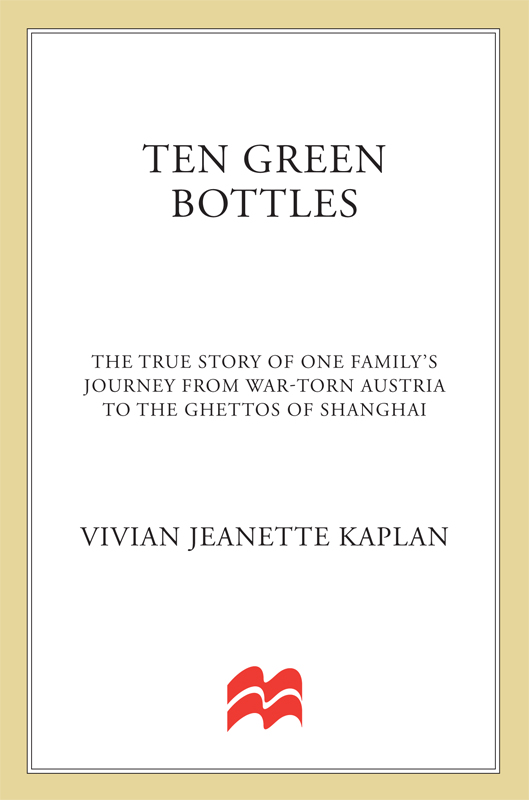
NINI KARPEL IN THE FRONT ROOM OF HER HOME AT 56 LICHTENSTEIN STRASSE, VIENNA 1936.

The author and publisher have provided this e-book to you for your personal use only. You may not make this e-book publicly available in any way. Copyright infringement is against the law. If you believe the copy of this e-book you are reading infringes on the authors copyright, please notify the publisher at: us.macmillanusa.com/piracy.
Contents
This story is dedicated to my parents, Gerda and Leopold Kosiner, whose heroic lives were my inspiration. The constant love and support they gave me throughout my life have enabled me to write this book.
To my grandparents, Johanna and Solomon Karpel and Bluma and Bernard Kosiner, whom I was not privileged to know during their lives but whose spirits I have somehow discovered through this work. Deep within me is the bond of blood and of love from them to me.
To my relatives, still living as well as those now deceased, whose names are here mentioned and preserved as part of a remarkable account of perseverance. Each one has a voice that should be heard, to bear witness to a shred of history that ought to be remembered.
To my husband, Barry, who has given me unquestioned love and encouragement in every endeavour I have pursued.
To our three sons, Cary, Randy and Darryl, who have brought enormous pride and happiness into our lives and who amaze us constantly with their ability, integrity and heart. They will carry their heritage forward to future generations. And also to my new little miracle grandson, Jackson Leo, who is my late fathers namesake and who, born three months prematurely, has already demonstrated his inherited strength, determination and fortitude and the relentless will to live.
INTRODUCTION
Ten Green Bottles can most accurately be categorized as a memoir in the creative non-fiction genre. I have written the work in the voice of my mother, Gerda Kosiner, who lived through a series of almost unbelievable experiences and survived. The events are as true and accurate as I can make them. The characters are real people, many of whom I know, who crossed her path or whose lives became entangled with hers. I have made every effort to verify scenes described in the book, including the exchange of words and thoughts that are expressed, although recreating verbatim dialogues would be impossible.
I feel myself more than a chronicler of detached circumstances. I was born in Shanghai, my mother tongue and cultural heritage are German, or more precisely, Viennese, and I became familiar with the story while listening to my mothers telling and retelling of the tales that are included. I am so intimately aware of the facts of this life that it seems almost as if I had experienced it myself. After numerous consultations with the people who are named in the book and additional corroboration with outsiders who were able to add their accounts to my research, I feel confident in the veracity of the events I describe. Where my description of an event differs from the experiences of others who lived during the same period, I can only say that this is a personal account, filled with vignettes told to me throughout my lifetime. I have included descriptions of pieces of memorabilia that I have in my possession and treasure to this day, inanimate objects that travelled the course of the journey.
Vivian Jeanette Kaplan
ACKNOWLEDGEMENTS
My gratitude to all those voices, past and present, alive and deceased, family and strangers, that echoed in my mind and guided the thoughts in my head. To my father, Poldi Kosiner, whose spirit has filled every page, whose words of wisdom and encouragement are an integral part of me. To my mother, Nini Kosiner, ne Karpel, who struggled to retrieve memories, distant and painful, to aid in my understanding of her most guarded emotions and allowed me to reveal them within this story.
To the Shanghailanders, a select group of refugees who, like my family, followed the path from oppression in Europe to an uneasy haven in Shanghai. Of those who shared reminiscences, a special thanks to Kurt Fischer in Sydney, Australia, whose correspondence was invaluable in refining and confirming historical details. To those who helped in background research, my thanks particularly to Helga Embacher and Margit Reiter in Salzburg.
In appreciation to Wendy Thomas, my editor, for perseverance and an inquisitive nature, who prodded me onwards whenever I faltered or to new discoveries if I imagined that all had already been said. To Robin Brass, my sincere thanks for first respecting my writing and subject matter enough to publish this book and then the disciplined drive to perfection and precision in form and detail that made the process an education and a pleasure.
V.J.K.
CHAPTER 1
PAPA 1921
Kneeling on a high-backed chair, my face propped on my open palms, I wait by the window and watch as the rain clatters against the glass and the cobbled streets below. Shutters are rattling in the wind. The streets of Vienna are wet and puddled. People are rushing about in the cold downpour, and there are so many round black umbrellas darting in and out of doorways that they look like crazed turtles. I can see only the fluttering domes, not the people beneath them as they flit about, zigzagging, colliding and parting, each in search of his own shelter.
Brownstone apartment buildings stand in rows on both sides of the wide street. Our home is in one of the spacious flats at 56 Lichtenstein Strasse. Our parents have lived here since their wedding day, and it is in this home that Mama has given birth to each of her children. We are three girls, of which I am the youngest. Nini, you must come now. Its time for bed, my mother calls.
My older sisters, Erna, whos thirteen, and Stella, whos ten, dont have to go to bed yet. They call me Baby although Im five already. Good Austrian names have been chosen for each of us to connect us firmly to our homeland. My real name, which no one uses, is Gerda. My father has nicknamed me Kindi, meaning Little Child, a term of endearment that I cherish. In my baby version of this, however, they say that I used to repeat Nini and that is the version that has stuck. My sisters are always teasing me about my silly name. Im the only one who is not called by a given name, and although I hate their taunting calls, secretly I think that I am the special one, the one that Papa loves best because of his pet name for me.
He is my protector, the source of all wisdom and strength that holds the family together. His skill as a businessman is widely extolled as he has established three large department stores of considerable repute in Vienna. He is proud to announce that his wife and children will always be well cared for and will want for nothing, living in this perfect world. He is a patriotic Austrian and reminds us often of our duty to the beloved country of our birth. My favourite time of day is the moment when he arrives home from work and swings me up in a tight embrace. I feel his prickly face rub against my cheek as I inhale his aftershave cologne, a mixture of wet wood and spice. His robust laugh starts deep in his belly and erupts, rippling in bursts, filling the room with spontaneous joy. We gather around his big deep chair where he plops in weary contentment at the end of the day to listen to our stories and to give us the benefit of his advice. He has discovered many things about the world, about human nature, and these he uses in business to his advantage. He often tries to share his thoughts with us, punctuated with colourful detail.


